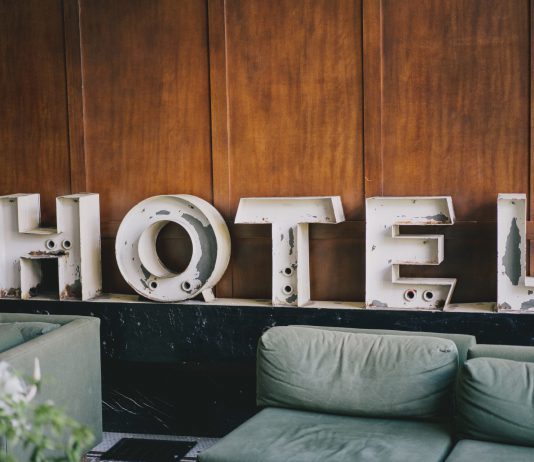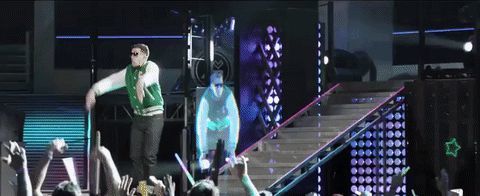Marcel van Marrewijk's Blog, page 49
April 17, 2019
How to Handle Difficult Business Conversations Without Losing Your Sanity

Difficult business conversations are bound to happen in any workplace whether it is with employees, clients, investors, lenders or vendors. These conversations may arise from many scenarios such as when you are addressing difficult someone with a problematic personality, or when negotiating a promotion. Other times like when a colleague has delayed a needed report, missed a deadline, or when you have to tell an employee that their job is at risk of being terminated.
Difficult business conversations are associated with intense and complex emotions, unforeseen reactions, vulnerability and fear of losing control of the parties involved. No business owner loves to deal with these kinds of conversations, and as a result, most of them tend to delay their intervention in the hopes that the issue will disappear. Avoiding handling these difficult conversations only leads to poor performance of the individuals involved and might result in low turnover to the broader organization in the long run.
Having these types of talks is something that everyone dreads, but unfortunately, they need to be dealt with at the earliest stage possible. Like in the gym, if you want to have a perfect appearance, you have to work hard. This article outlines 5 ways of maximizing your ability to handle difficult business conversations;
1. Prepare yourself and the other person for the discussion
Determine why the conversation must take place and knowing what you wish to achieve at the end. Having a purpose and a goal for the talk helps you to focus on what the issue is, have the facts at hand and to put any other irrelevant conversations at bay. Write down these problems, topics and relevant information you wish to raise during the discussion because you can forget them or raise unplanned issues if the meeting gets heated. When you are ready for the conversation, it is crucial that you also hint the general idea of the impending exchange to the other party so that they can prepare themselves in advance too.
2. Be unbiased and focus on the facts
Since difficult conversations arouse complex emotions, it is challenging to remain objective when having them. Your feelings about the situation, how to start it or the attitude you have towards the employees involved shouldn’t be a barrier for you to act professionally or put your needs above the organization’s goals. Do not let your personal biases or prejudice cloud your judgment. Try to remain positive amid the uncomfortable conversation, and you will be able to deal with the situation professionally. Take a deep breath to calm yourself to put your emotions off the table and base your facts on the presented evidence. Ensure that you keep an open-mind while handling the situation. You may even question your beliefs and assumptions at some point to remain objective on the issue.
3. Listen to the other party
When you have opened up the conversation, diffuse tension by presenting the matter clearly, letting the other party know that they will have time to express their side of the story and your desire to solve the case. Listen actively to their viewpoint. Do not interrupt them. If they say something that catches you by surprise, take time to reflect. Communicate your views with generosity, respect, integrity, and truth. You can ask them questions so that you can understand their point of view better.
4. Take care of the reactions
It is not unexpected for the other person to feel angry or upset about the outcome of the discussion. The important thing is to handle the person with care during that situation. Put yourself in their shoes and figure out what you would want to hear if you are in the same position. Do not tell them that their actions are silly, irrational or dramatic but instead be compassionate. Show empathy and give the person a break to compose themselves.
5. Find a solution and maintain a follow-up
At this point, you have shared all the information and expressed your opinions. It is time to be constructive and come up with actionable and amicable solutions. You shouldn’t coerce the other person to accept your decision or point of view, and instead, you should find a middle ground where a solution will be fair for all the involved parties and agree on what needs to change. It is also advisable to maintain a follow up even after the conversation is over to ensure the outcome was fair to the individual and they are taking actions to change.
Conclusion
Ability to handle difficult business conversations is essential for any business owner or manager. It is not an easy thing, but with practice, it becomes much less difficult to master it. Arrange a face to face meeting as soon as possible and confront the situation with empathy and in a constructive way so that you can attain a win-win solution.
The post How to Handle Difficult Business Conversations Without Losing Your Sanity appeared first on Seats2meet.
Hoe jouw gasten creatiever, productiever én slimmer het hotel verlaten na een dagje flexwerken

Steeds meer hotels sluiten zich aan als Powered by Seats2meet locatie: Moxy, Ibis styles hotels, Radisson Blu Palace, Carlton President, High Five Hotel, Novotel, The Dylan, Hotel Mercuré Vé, Short Stay Houses en Canal House doen al mee.
Het is hot om meer connectie te maken met de buurt waar je hotel staat. Dé woonkamer worden van de stad is een sterkte behoefte. Hotel lounges staan vaak leeg na het ontbijt én hotels willen reizigers in verbinding laten komen met locals. Een goede reden om je hotel deuren open te stellen voor ondernemers, freelancers en zp’ers uit de buurt!
Beleveniseconomie
Hospitality zit in het hart van hotels. Veel hotels richten zich op het aanbieden van een volledige ervaring van in- tot uitchecken. Joseph Pine is medeoprichter van Strategic Horizons LLP, een ideeënstudio die bedrijven helpt nieuwe manieren te bedenken om waarde toe te voegen. 1 van de bestellers die hij geschreven heeft heet ‘De Beleveniseconomie’ ook wel bekend als de ‘experience economy’.
Van koffieboon tot fancy-koffie-naam-met-soja-of-haver-melk-in-een-heel-groot-glas-met-cacao-poeder
 Maar wat betekent de beleveniseconomie? In het kort; je voegt aan een product ‘extra’s’ toe om meer waarde te bereiken.
Maar wat betekent de beleveniseconomie? In het kort; je voegt aan een product ‘extra’s’ toe om meer waarde te bereiken.
Denk aan koffie 
Een koffieboon is misschien 2 cent waard.
Na oogsten en het schoonmaken/drogen van de bonen is de boon al meer waard.
Worden de bonen gebrand en verpakt voor de consument (denk aan Douwe Egberts) kan je er al een paar euro voor vragen.

Bied je deze koffie aan in een koffietentje in een mooi glas en geef je de koffie een fancy naam die je bijna niet kan uitspreken dan kan je er ineens 6 euro voor vragen.
Die 6 euro kan gevraagd worden omdat er een ervaring toegevoegd wordt aan het orginele product. Dit is de ‘beleveniseconomie’.
Maar de beleveniseconomie is zoooo 2018
Maar als je echt relevant wilt blijven in deze snel veranderende wereld. Gaat het veel verder dan alleen een ‘beleving’ aanbieden. Deze beleving die is namelijk een paar keer leuk en bijzonder, maar de 5e keer dat je in hetzelfde cafetje komt is de ervaring niet meer zo bijzonder en misschien wordt het zelfs minder leuk. Om ervoor te zorgen dat je blijft komen moet dat cafetje meer aanbieden. Namelijk een ‘transformatie’. Dit klink misschien vrij heftig, maar wat Pine hiermee bedoelt is dat je iets moet aanbieden waardoor de bezoeker letterlijk een beetje veranderd. Hoe? Een ontmoeting facciliteren, die je gast niet verwacht had maar wel relevant is (serendipiteit).
Nu faciliteerd Seats2meet al meer dan 10 jaar serendipiteit. Niet gek dus dat hotels zich massaal aansluiten als Powered by Seats2meet locaties.
Wil jij ook jouw gasten creatiever, slimmer en productiever je hotel laten verlaten? Meld dan ook jouw hotel aan.
JOUW HOTEL ALS POWERED BY SEATS2MEET LOCATIE
The post Hoe jouw gasten creatiever, productiever én slimmer het hotel verlaten na een dagje flexwerken
Hoe jouw gasten creatiever, productiever én slimmer het hotel verlaten na een dagje flexwerken

Steeds meer hotels sluiten zich aan als Powered by Seats2meet locatie: Moxy, Ibis styles hotels, Radisson Blu Palace, Carlton President, High Five Hotel, Novotel, The Dylan, Hotel Mercuré Vé, Short Stay Houses en Canal House doen al mee.
Het is hot om meer connectie te maken met de buurt waar je hotel staat. Dé woonkamer worden van de stad is een sterkte behoefte. Hotel lounges staan vaak leeg na het ontbijt én hotels willen reizigers in verbinding laten komen met locals. Een goede reden om je hotel deuren open te stellen voor ondernemers, freelancers en zp’ers uit de buurt!
Beleveniseconomie
Hospitality zit in het hart van hotels. Veel hotels richten zich op het aanbieden van een volledige ervaring van in- tot uitchecken. Joseph Pine is medeoprichter van Strategic Horizons LLP, een ideeënstudio die bedrijven helpt nieuwe manieren te bedenken om waarde toe te voegen. 1 van de bestellers die hij geschreven heeft heet ‘De Beleveniseconomie’ ook wel bekend als de ‘experience economy’.
Van koffieboon tot fancy-koffie-naam-met-soja-of-haver-melk-in-een-heel-groot-glas-met-cacao-poeder
 Maar wat betekent de beleveniseconomie? In het kort; je voegt aan een product ‘extra’s’ toe om meer waarde te bereiken.
Maar wat betekent de beleveniseconomie? In het kort; je voegt aan een product ‘extra’s’ toe om meer waarde te bereiken.
Denk aan koffie 
Een koffieboon is misschien 2 cent waard.
Na oogsten en het schoonmaken/drogen van de bonen is de boon al meer waard.
Worden de bonen gebrand en verpakt voor de consument (denk aan Douwe Egberts) kan je er al een paar euro voor vragen.

Bied je deze koffie aan in een koffietentje in een mooi glas en geef je de koffie een fancy naam die je bijna niet kan uitspreken dan kan je er ineens 6 euro voor vragen.
Die 6 euro kan gevraagd worden omdat er een ervaring toegevoegd wordt aan het orginele product. Dit is de ‘beleveniseconomie’.
Maar de beleveniseconomie is zoooo 2018
Maar als je echt relevant wilt blijven in deze snel veranderende wereld. Gaat het veel verder dan alleen een ‘beleving’ aanbieden. Deze beleving die is namelijk een paar keer leuk en bijzonder, maar de 5e keer dat je in hetzelfde cafetje komt is de ervaring niet meer zo bijzonder en misschien wordt het zelfs minder leuk. Om ervoor te zorgen dat je blijft komen moet dat cafetje meer aanbieden. Namelijk een ‘transformatie’. Dit klink misschien vrij heftig, maar wat Pine hiermee bedoelt is dat je iets moet aanbieden waardoor de bezoeker letterlijk een beetje veranderd. Hoe? Een ontmoeting facciliteren, die je gast niet verwacht had maar wel relevant is (serendipiteit).
Nu faciliteerd Seats2meet al meer dan 10 jaar serendipiteit. Niet gek dus dat hotels zich massaal aansluiten als Powered by Seats2meet locaties.
Wil jij ook jouw gasten creatiever, slimmer en productiever je hotel laten verlaten? Meld dan ook jouw hotel aan.
JOUW HOTEL ALS POWERED BY SEATS2MEET LOCATIE
The post Hoe jouw gasten creatiever, productiever én slimmer het hotel verlaten na een dagje flexwerken
Hoe jouw gasten creatiever, productiever én slimmer het hotel verlaten na een dagje flexwerken

Steeds meer hotels sluiten zich aan als Powered by Seats2meet locatie: Moxy, Ibis styles hotels, Radisson Blu Palace, Carlton President, High Five Hotel, Novotel, The Dylan, Hotel Mercuré Vé, Short Stay Houses en Canal House doen al mee.
Het is hot om meer connectie te maken met de buurt waar je hotel staat. Dé woonkamer worden van de stad is een sterkte behoefte. Hotel lounges staan vaak leeg na het ontbijt én hotels willen reizigers in verbinding laten komen met locals. Een goede reden om je hotel deuren open te stellen voor ondernemers, freelancers en zp’ers uit de buurt!
Beleveniseconomie
Hospitality zit in het hart van hotels. Veel hotels richten zich op het aanbieden van een volledige ervaring van in- tot uitchecken. Joseph Pine is medeoprichter van Strategic Horizons LLP, een ideeënstudio die bedrijven helpt nieuwe manieren te bedenken om waarde toe te voegen. 1 van de bestellers die hij geschreven heeft heet ‘De Beleveniseconomie’ ook wel bekend als de ‘experience economy’.
Van koffieboon tot fancy-koffie-naam-met-soja-of-haver-melk-in-een-heel-groot-glas-met-cacao-poeder
 Maar wat betekent de beleveniseconomie? In het kort; je voegt aan een product ‘extra’s’ toe om meer waarde te bereiken.
Maar wat betekent de beleveniseconomie? In het kort; je voegt aan een product ‘extra’s’ toe om meer waarde te bereiken.
Denk aan koffie 
Een koffieboon is misschien 2 cent waard.
Na oogsten en het schoonmaken/drogen van de bonen is de boon al meer waard.
Worden de bonen gebrand en verpakt voor de consument (denk aan Douwe Egberts) kan je er al een paar euro voor vragen.

Bied je deze koffie aan in een koffietentje in een mooi glas en geef je de koffie een fancy naam die je bijna niet kan uitspreken dan kan je er ineens 6 euro voor vragen.
Die 6 euro kan gevraagd worden omdat er een ervaring toegevoegd wordt aan het orginele product. Dit is de ‘beleveniseconomie’.
Maar de beleveniseconomie is zoooo 2018
Maar als je echt relevant wilt blijven in deze snel veranderende wereld. Gaat het veel verder dan alleen een ‘beleving’ aanbieden. Deze beleving die is namelijk een paar keer leuk en bijzonder, maar de 5e keer dat je in hetzelfde cafetje komt is de ervaring niet meer zo bijzonder en misschien wordt het zelfs minder leuk. Om ervoor te zorgen dat je blijft komen moet dat cafetje meer aanbieden. Namelijk een ‘transformatie’. Dit klink misschien vrij heftig, maar wat Pine hiermee bedoelt is dat je iets moet aanbieden waardoor de bezoeker letterlijk een beetje veranderd. Hoe? Een ontmoeting facciliteren, die je gast niet verwacht had maar wel relevant is (serendipiteit).
Nu faciliteerd Seats2meet al meer dan 10 jaar serendipiteit. Niet gek dus dat hotels zich massaal aansluiten als Powered by Seats2meet locaties.
Wil jij ook jouw gasten creatiever, slimmer en productiever je hotel laten verlaten? Meld dan ook jouw hotel aan.
JOUW HOTEL ALS POWERED BY SEATS2MEET LOCATIE
The post Hoe jouw gasten creatiever, productiever én slimmer het hotel verlaten na een dagje flexwerken
Hoe jouw gasten creatiever, productiever én slimmer het hotel verlaten na een dagje flexwerken

Steeds meer hotels sluiten zich aan als Powered by Seats2meet locatie: Moxy, Ibis styles hotels, Radisson Blu Palace, Carlton President, High Five Hotel, Novotel, The Dylan, Hotel Mercuré Vé, Short Stay Houses en Canal House doen al mee.
Het is hot om meer connectie te maken met de buurt waar je hotel staat. Dé woonkamer worden van de stad is een sterkte behoefte. Hotel lounges staan vaak leeg na het ontbijt én hotels willen reizigers in verbinding laten komen met locals. Een goede reden om je hotel deuren open te stellen voor ondernemers, freelancers en zp’ers uit de buurt!
Beleveniseconomie
Hospitality zit in het hart van hotels. Veel hotels richten zich op het aanbieden van een volledige ervaring van in- tot uitchecken. Joseph Pine is medeoprichter van Strategic Horizons LLP, een ideeënstudio die bedrijven helpt nieuwe manieren te bedenken om waarde toe te voegen. 1 van de bestellers die hij geschreven heeft heet ‘De Beleveniseconomie’ ook wel bekend als de ‘experience economy’.
Van koffieboon tot fancy-koffie-naam-met-soja-of-haver-melk-in-een-heel-groot-glas-met-cacao-poeder
 Maar wat betekent de beleveniseconomie? In het kort; je voegt aan een product ‘extra’s’ toe om meer waarde te bereiken.
Maar wat betekent de beleveniseconomie? In het kort; je voegt aan een product ‘extra’s’ toe om meer waarde te bereiken.
Denk aan koffie 
Een koffieboon is misschien 2 cent waard.
Na oogsten en het schoonmaken/drogen van de bonen is de boon al meer waard.
Worden de bonen gebrand en verpakt voor de consument (denk aan Douwe Egberts) kan je er al een paar euro voor vragen.

Bied je deze koffie aan in een koffietentje in een mooi glas en geef je de koffie een fancy naam die je bijna niet kan uitspreken dan kan je er ineens 6 euro voor vragen.
Die 6 euro kan gevraagd worden omdat er een ervaring toegevoegd wordt aan het orginele product. Dit is de ‘beleveniseconomie’.
Maar de beleveniseconomie is zoooo 2018
Maar als je echt relevant wilt blijven in deze snel veranderende wereld. Gaat het veel verder dan alleen een ‘beleving’ aanbieden. Deze beleving die is namelijk een paar keer leuk en bijzonder, maar de 5e keer dat je in hetzelfde cafetje komt is de ervaring niet meer zo bijzonder en misschien wordt het zelfs minder leuk. Om ervoor te zorgen dat je blijft komen moet dat cafetje meer aanbieden. Namelijk een ‘transformatie’. Dit klink misschien vrij heftig, maar wat Pine hiermee bedoelt is dat je iets moet aanbieden waardoor de bezoeker letterlijk een beetje veranderd. Hoe? Een ontmoeting facciliteren, die je gast niet verwacht had maar wel relevant is (serendipiteit).
Nu faciliteerd Seats2meet al meer dan 10 jaar serendipiteit. Niet gek dus dat hotels zich massaal aansluiten als Powered by Seats2meet locaties.
Wil jij ook jouw gasten creatiever, slimmer en productiever je hotel laten verlaten? Meld dan ook jouw hotel aan.
JOUW HOTEL ALS POWERED BY SEATS2MEET LOCATIE
The post Hoe jouw gasten creatiever, productiever én slimmer het hotel verlaten na een dagje flexwerken
Hoe jouw gasten creatiever, productiever én slimmer het hotel verlaten na een dagje flexwerken

Steeds meer hotels sluiten zich aan als Powered by Seats2meet locatie: Moxy, Ibis styles hotels, Radisson Blu Palace, Carlton President, High Five Hotel, Novotel, The Dylan, Hotel Mercuré Vé, Short Stay Houses en Canal House doen al mee.
Het is hot om meer connectie te maken met de buurt waar je hotel staat. Dé woonkamer worden van de stad is een sterkte behoefte. Hotel lounges staan vaak leeg na het ontbijt én hotels willen reizigers in verbinding laten komen met locals. Een goede reden om je hotel deuren open te stellen voor ondernemers, freelancers en zp’ers uit de buurt!
Beleveniseconomie
Hospitality zit in het hart van hotels. Veel hotels richten zich op het aanbieden van een volledige ervaring van in- tot uitchecken. Joseph Pine is medeoprichter van Strategic Horizons LLP, een ideeënstudio die bedrijven helpt nieuwe manieren te bedenken om waarde toe te voegen. 1 van de bestellers die hij geschreven heeft heet ‘De Beleveniseconomie’ ook wel bekend als de ‘experience economy’.
Van koffieboon tot fancy-koffie-naam-met-soja-of-haver-melk-in-een-heel-groot-glas-met-cacao-poeder
 Maar wat betekent de beleveniseconomie? In het kort; je voegt aan een product ‘extra’s’ toe om meer waarde te bereiken.
Maar wat betekent de beleveniseconomie? In het kort; je voegt aan een product ‘extra’s’ toe om meer waarde te bereiken.
Denk aan koffie 
Een koffieboon is misschien 2 cent waard.
Na oogsten en het schoonmaken/drogen van de bonen is de boon al meer waard.
Worden de bonen gebrand en verpakt voor de consument (denk aan Douwe Egberts) kan je er al een paar euro voor vragen.

Bied je deze koffie aan in een koffietentje in een mooi glas en geef je de koffie een fancy naam die je bijna niet kan uitspreken dan kan je er ineens 6 euro voor vragen.
Die 6 euro kan gevraagd worden omdat er een ervaring toegevoegd wordt aan het orginele product. Dit is de ‘beleveniseconomie’.
Maar de beleveniseconomie is zoooo 2018
Maar als je echt relevant wilt blijven in deze snel veranderende wereld. Gaat het veel verder dan alleen een ‘beleving’ aanbieden. Deze beleving die is namelijk een paar keer leuk en bijzonder, maar de 5e keer dat je in hetzelfde cafetje komt is de ervaring niet meer zo bijzonder en misschien wordt het zelfs minder leuk. Om ervoor te zorgen dat je blijft komen moet dat cafetje meer aanbieden. Namelijk een ‘transformatie’. Dit klink misschien vrij heftig, maar wat Pine hiermee bedoelt is dat je iets moet aanbieden waardoor de bezoeker letterlijk een beetje veranderd. Hoe? Een ontmoeting facciliteren, die je gast niet verwacht had maar wel relevant is (serendipiteit).
Nu faciliteerd Seats2meet al meer dan 10 jaar serendipiteit. Niet gek dus dat hotels zich massaal aansluiten als Powered by Seats2meet locaties.
Wil jij ook jouw gasten creatiever, slimmer en productiever je hotel laten verlaten? Meld dan ook jouw hotel aan.
JOUW HOTEL ALS POWERED BY SEATS2MEET LOCATIE
The post Hoe jouw gasten creatiever, productiever én slimmer het hotel verlaten na een dagje flexwerken
April 16, 2019
How about the future of work? 10 questions to ask yourself

Our shared challenge of making an impact, ensuring inclusion and getting things done at work keeps us running too hard. Let’s change that, join our event How about the future of work – today!
How about the future of work – today
We are looking forward to exploring together with Ronald van den Hoff, Christian Busch and Phoebe Tickell the way we will work in the future and how we can learn from that today. On May 9th, at the TechCity College in London, these three impressive thought leaders take this subject on and ensure you go home inspired with practical tips and new connections to start your Future of Work Today. After short and thought-provoking statements from each of the 3 speakers, there will be an interactive session with to engage the audience and further explore the theme.
Why asking yourself questions makes you successful
Different researches show that asking questions helps to unlock innovations, help you to become a great leader and are critical in starting new successful collaborations. That’s why we came up with 10 questions.
Ask yourself these 10 questions to be future proof – today!

1. How can you use tech today to automate parts of your work?
2. If you could hologram yourself, where would you work from most of the time?
3. What kind of skills do you think children need to learn for the future of work?
4. How could a robot make your workday more productive and/or fun?
5. How will nature effect you in the future of work and how is it affecting you today?
6 Will monetary capital still be your salary every month?
7. How will you learn new stuff?
8. What are the tools you will use to stay inspired?
9. What type of communications will exist?
10. What can be a future proof title for your role, activities in your work today?

Came up with some new inspiration and ideas? Let us know!
The post How about the future of work? 10 questions to ask yourself
How about the future of work? 10 questions to ask yourself

Our shared challenge of making an impact, ensuring inclusion and getting things done at work keeps us running too hard. Let’s change that, join our event How about the future of work – today!
How about the future of work – today
We are looking forward to exploring together with Ronald van den Hoff, Christian Busch and Phoebe Tickell the way we will work in the future and how we can learn from that today. On May 9th, at the TechCity College in London, these three impressive thought leaders take this subject on and ensure you go home inspired with practical tips and new connections to start your Future of Work Today. After short and thought-provoking statements from each of the 3 speakers, there will be an interactive session with to engage the audience and further explore the theme.
Why asking yourself questions makes you successful
Different researches show that asking questions helps to unlock innovations, help you to become a great leader and are critical in starting new successful collaborations. That’s why we came up with 10 questions.
Ask yourself these 10 questions to be future proof – today!

1. How can you use tech today to automate parts of your work?
2. If you could hologram yourself, where would you work from most of the time?
3. What kind of skills do you think children need to learn for the future of work?
4. How could a robot make your workday more productive and/or fun?
5. How will nature effect you in the future of work and how is it affecting you today?
6 Will monetary capital still be your salary every month?
7. How will you learn new stuff?
8. What are the tools you will use to stay inspired?
9. What type of communications will exist?
10. What can be a future proof title for your role, activities in your work today?

Came up with some new inspiration and ideas? Let us know!
The post How about the future of work? 10 questions to ask yourself
How about the future of work? 10 questions to ask yourself

Our shared challenge of making an impact, ensuring inclusion and getting things done at work keeps us running too hard. Let’s change that, join our event How about the future of work – today!
How about the future of work – today
We are looking forward to exploring together with Ronald van den Hoff, Christian Busch and Phoebe Tickell the way we will work in the future and how we can learn from that today. On May 9th, at the TechCity College in London, these three impressive thought leaders take this subject on and ensure you go home inspired with practical tips and new connections to start your Future of Work Today. After short and thought-provoking statements from each of the 3 speakers, there will be an interactive session with to engage the audience and further explore the theme.
Why asking yourself questions makes you successful
Different researches show that asking questions helps to unlock innovations, help you to become a great leader and are critical in starting new successful collaborations. That’s why we came up with 10 questions.
Ask yourself these 10 questions to be future proof – today!

1. How can you use tech today to automate parts of your work?
2. If you could hologram yourself, where would you work from most of the time?
3. What kind of skills do you think children need to learn for the future of work?
4. How could a robot make your workday more productive and/or fun?
5. How will nature effect you in the future of work and how is it affecting you today?
6 Will monetary capital still be your salary every month?
7. How will you learn new stuff?
8. What are the tools you will use to stay inspired?
9. What type of communications will exist?
10. What can be a future proof title for your role, activities in your work today?

Came up with some new inspiration and ideas? Let us know!
The post How about the future of work? 10 questions to ask yourself
How about the future of work? 10 questions to ask yourself

Our shared challenge of making an impact, ensuring inclusion and getting things done at work keeps us running too hard. Let’s change that, join our event How about the future of work – today!
How about the future of work – today
We are looking forward to exploring together with Ronald van den Hoff, Christian Busch and Phoebe Tickell the way we will work in the future and how we can learn from that today. On May 9th, at the TechCity College in London, these three impressive thought leaders take this subject on and ensure you go home inspired with practical tips and new connections to start your Future of Work Today. After short and thought-provoking statements from each of the 3 speakers, there will be an interactive session with to engage the audience and further explore the theme.
Why asking yourself questions makes you successful
Different researches show that asking questions helps to unlock innovations, help you to become a great leader and are critical in starting new successful collaborations. That’s why we came up with 10 questions.
Ask yourself these 10 questions to be future proof – today!

1. How can you use tech today to automate parts of your work?
2. If you could hologram yourself, where would you work from most of the time?
3. What kind of skills do you think children need to learn for the future of work?
4. How could a robot make your workday more productive and/or fun?
5. How will nature effect you in the future of work and how is it affecting you today?
6 Will monetary capital still be your salary every month?
7. How will you learn new stuff?
8. What are the tools you will use to stay inspired?
9. What type of communications will exist?
10. What can be a future proof title for your role, activities in your work today?

Came up with some new inspiration and ideas? Let us know!
The post How about the future of work? 10 questions to ask yourself



